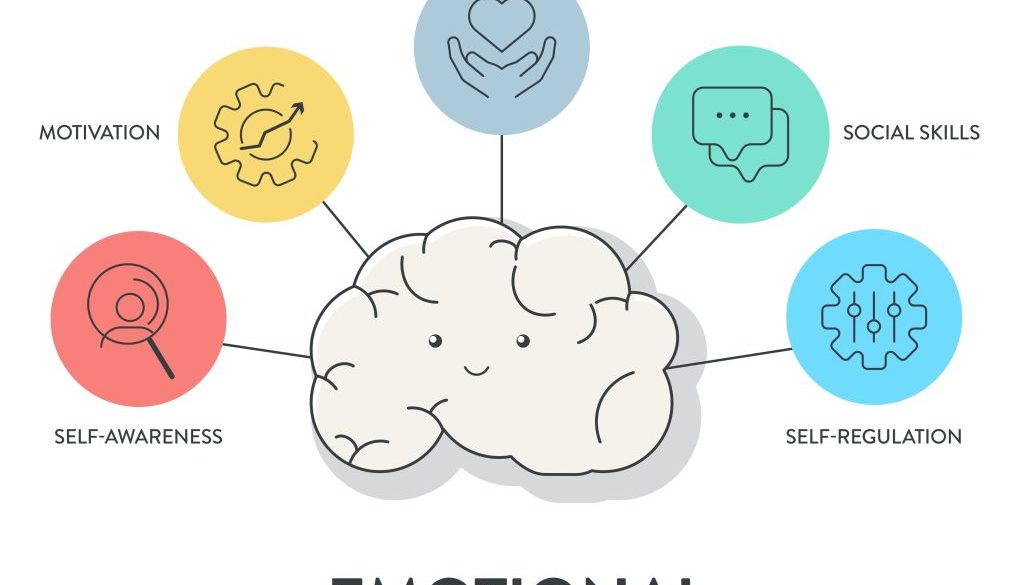Emotional Intelligence: A Solution to Physician Burnout and Stress
What is the relationship between emotional intelligence and physician burnout?
As a physician, you are no stranger to the demands and stresses of the medical profession. Long hours, high-pressure situations, and the constant need to balance patient care with administrative tasks can take a toll on even the most resilient individuals. This is where the power of emotional intelligence comes into play. By developing your emotional intelligence skills, you can not only protect yourself against burnout but also pave the way for a more fulfilling and successful career in medicine.
What is Emotional Intelligence?
At its core, emotional intelligence (EI) refers to the ability to recognize, understand, and manage your own emotions, as well as the emotions of others. It encompasses four key components: self-awareness, self-regulation, social awareness, and relationship management. By mastering these skills, physicians can navigate the complex emotional landscape of healthcare with greater ease and effectiveness.
Preventing Physician Burnout through Emotional Intelligence
Physician burnout is a growing concern in the medical community, with studies showing that nearly half of all doctors experience symptoms of burnout at some point in their careers. However, by cultivating emotional intelligence, physicians can build resilience and protect themselves against the negative effects of stress and burnout.
Self-awareness allows physicians to recognize the signs of burnout in themselves, such as feelings of exhaustion, cynicism, or detachment from work. By identifying these emotions early on, doctors can take proactive steps to address the underlying causes and prevent burnout from taking hold.
Self-regulation is another critical component of emotional intelligence that can help physicians manage stress and prevent burnout. By learning techniques for regulating their emotions, such as deep breathing, mindfulness, or cognitive reframing, doctors can maintain a sense of calm and focus even in the most challenging situations.
Building Community and Effective Teams through Emotional Intelligence
In addition to preventing burnout, emotional intelligence can also help physicians build stronger relationships with their colleagues and patients. Social awareness, or the ability to recognize and understand the emotions of others, is key to developing empathy and rapport with patients. By tuning into their patients’ emotional cues, physicians can provide more personalized and compassionate care, leading to better outcomes and higher patient satisfaction.
Relationship management, the fourth component of emotional intelligence, is essential for building effective teams and fostering a sense of community within the healthcare setting. Physicians with strong relationship management skills are able to communicate clearly, resolve conflicts, and inspire and motivate their colleagues towards a common goal. This not only creates a more positive work environment but also enhances the quality of patient care.
Unlocking Career Success through Emotional Intelligence
Beyond its benefits for preventing burnout and building strong relationships, emotional intelligence is also a key driver of career success for physicians. Doctors who possess high levels of emotional intelligence are better equipped to navigate the challenges of leadership, whether in a clinical setting or in an administrative role.
Emotionally intelligent physicians are able to make sound decisions under pressure, communicate effectively with stakeholders, and inspire trust and confidence in their teams. These skills are essential for advancing into leadership positions and driving positive change within healthcare organizations.
Moreover, emotional intelligence is increasingly recognized as a valuable asset by employers across all industries, including healthcare. By developing your emotional intelligence skills, you can differentiate yourself as a candidate and position yourself for growth and advancement throughout your career.
Cultivating Emotional Intelligence as a Physician
While some individuals may be naturally more emotionally intelligent than others, the good news is that emotional intelligence can be developed and strengthened over time. By engaging in targeted training and practice, physicians can cultivate their emotional intelligence skills and unlock the many benefits for their well-being, relationships, and career success.
This may involve participating in workshops or coaching sessions focused on emotional intelligence, or simply making a conscious effort to practice self-awareness, self-regulation, social awareness, and relationship management in your daily interactions with patients and colleagues.
By prioritizing the development of emotional intelligence alongside your clinical expertise, you can position yourself for a long and fulfilling career in medicine, while also making a positive impact on the lives of your patients and the broader healthcare community.





